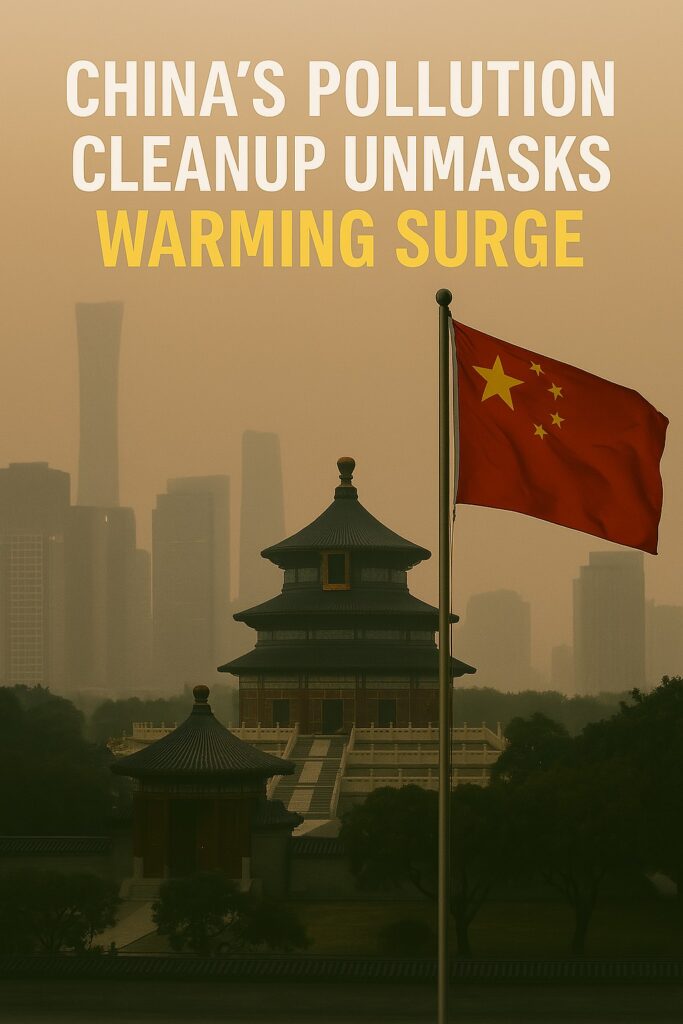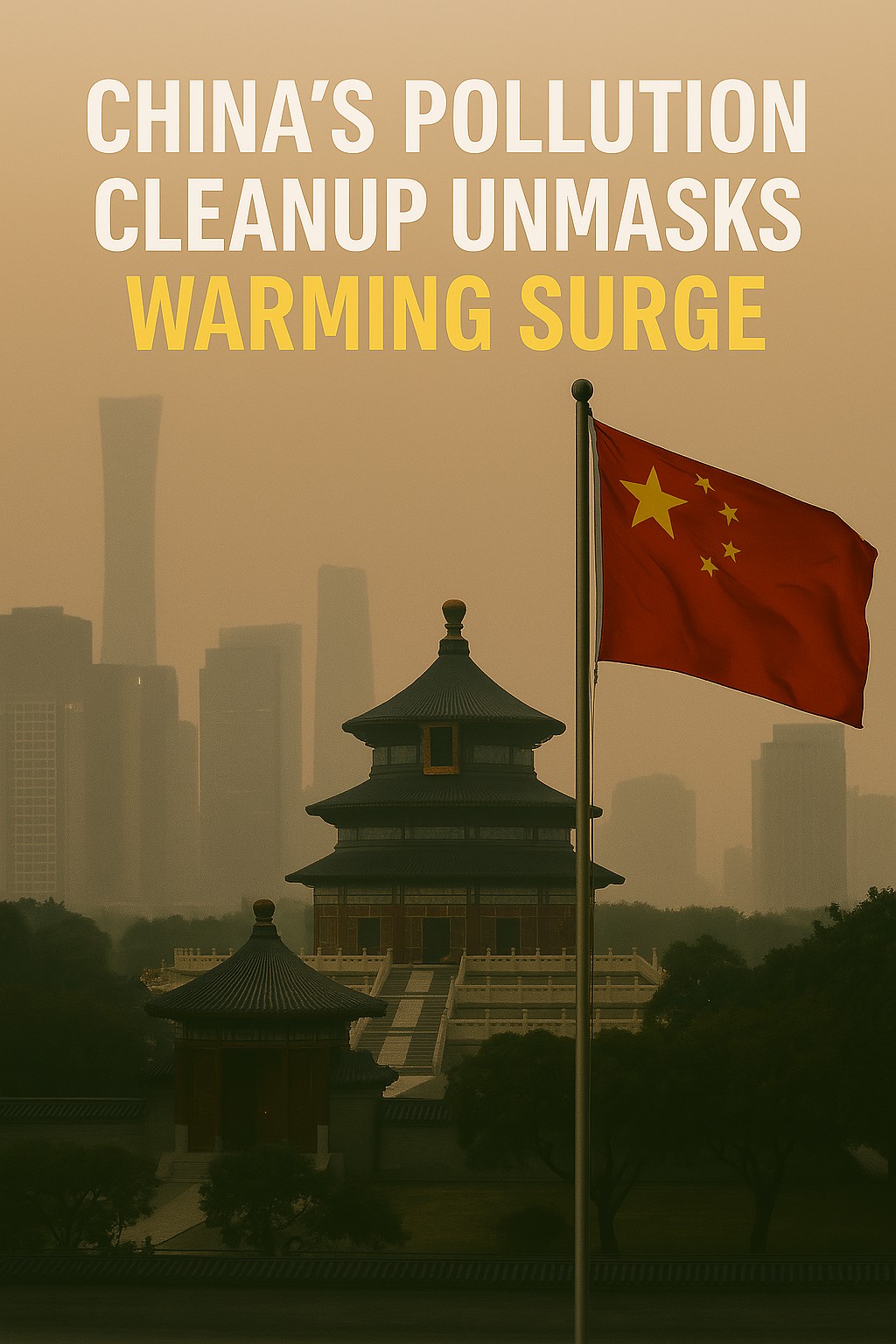
A groundbreaking study published in Communications Earth & Environment has revealed that East Asia’s aggressive air pollution cleanup — particularly in China — has inadvertently accelerated global warming. The report, based on simulations from eight climate models, shows that a 75% reduction in sulfate aerosol emissions over the past 15 years has unmasked the warming effects of greenhouse gases, contributing to a spike in surface temperatures.
While the cleanup has saved lives and improved public health — especially in urban centers like Beijing and Seoul — the unintended climate consequence is now reshaping regional diplomacy. Sulfate aerosols, once prevalent due to fossil fuel combustion, had a cooling effect by reflecting sunlight. Their removal has exposed the full force of carbon-driven warming, with noticeable shifts in Pacific temperature patterns.
Chinese officials, while celebrating the success of their air quality policies, are now facing pressure to recalibrate their climate commitments. The Ministry of Ecology and Environment acknowledged the findings but emphasized that short-term warming is a necessary trade-off for long-term sustainability.
Japan and South Korea, both affected by the regional warming trend, are calling for a new climate compact that balances pollution control with geoengineering research. Tokyo’s Environment Minister proposed a joint task force to explore stratospheric aerosol injection and carbon capture technologies, while Seoul is pushing for a regional carbon market to offset emissions.
Economically, the warming surge is impacting agriculture and energy demand. Rice yields in southern China have dropped by 8% compared to last year, while South Korea reported a 12% spike in summer electricity consumption due to heatwaves. These shifts are prompting governments to rethink food security strategies and grid resilience.
Strategically, the findings are also influencing military planning. The PLA’s Southern Theater Command is reportedly adjusting its logistics protocols to account for extreme weather, while Japan’s Self-Defense Forces are investing in climate-adaptive infrastructure.
East Asia’s cleanup success story is now a cautionary tale — a reminder that environmental victories can carry complex consequences. As the region grapples with this paradox, the next chapter in climate diplomacy may be written not in emissions targets, but in adaptive resilience and technological innovation.




